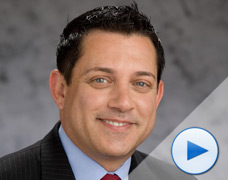FREQUENTLY ASKED QUESTIONS – Estate Planning
What is Estate Planning?
A legal process where a person’s property and finance objectives are arranged with their healthcare decisions to achieve long term family planning goals.
What does an Estate Plan Include?
Our Estate Plan package generally includes a Will, a Trust, a Power of Attorney and an Advanced Healthcare Directive. We also draft and execute necessary corollary documents.
A Will is an instrument by which a person records their desires regarding distribution of property and their specific wishes after death. Two major disadvantages of relying on a Will alone to manage your Estate Planning goals include:
A Will is not effective in the event you become incapacitated;
A Will subjects your loved ones to a lengthy, public and expensive probate process.
A Trust is a legal relationship between its creator (“settlor”), its manager (“trustee”) and its beneficiaries. A Trust can be drafted to achieve any legal purpose during the settlor’s life and will determine the management of your estate in the event you become incapacitated or pass away.
Durable Powers of Attorney allow you to nominate the person of your choice to make decisions regarding your finances and healthcare decisions in the event you become incapacitated.
An Advanced Healthcare Directive allows you to make specific decisions regarding your end of life wishes in order to eliminate the “Terri Schiavo” problems of today’s medicine.
What types of questions will I be asked before an Estate Plan can be completed?
How would you like to plan for your family’s future and who will be the beneficiaries of your estate?
What are your wishes should you become incapacitated?
Who will raise your minor children should you be unable to care for them?
What is your Estate?
Basically, everything you own! Your Estate includes all of your real estate, bank accounts, investments, insurance policies and any other assets you acquire during life.
Who needs Estate Planning?
Everyone. Whatever the size of your estate, the management and distribution of your assets is an important part of providing for loved ones. Estate Planning will help eliminate or significantly reduce your estate tax obligation on your passing.
What happens without an Estate Plan?
Your loved ones are forced to endure a public court process known as Probate. This is a proceeding where the court will oversee the distribution of your Estate.
If you don’t have a Will, the court will pay your debts off and will then distribute your remaining assets according to statutory guidelines, not according to your own wishes!
If you have a valid Will, the Court will pay your debts and will oversee the distribution of your assets according to the provisions in your Will.
As mentioned above, a Will is only effective upon your death. It is not operative if you are alive but incapacitated.
What is Joint Tenancy?
Joint tenancy means that when the first owner dies, title automatically passes to the surviving owner.
Can I hold my property as “joint tenants with right of survivorship” to avoid probate?
The simple answer is no because if you hold property as Joint Tenants with your spouse, Probate proceedings will be initiated on upon the death of the surviving spouse. Additionally, holding property in joint tenancy with your spouse prevents your family from optimizing estate tax savings available to married couples.
Are there any other problems with Joint Tenancy?
Yes. If you hold property in Joint Tenancy with someone other than your spouse, you may cause the “unintentional disinheritance” of your children. This can occur because, on your death, the surviving Joint Tenant has no obligation to provide for your children or your spouse because they hold the property outright.
In general, what are Estate Taxes and how do they work?
On June 7, 2001, President Bush signed the Economic Growth and Tax Relief Reconciliation Act of 2001, which made significant changes to Federal estate, gift and generation-skipping transfer taxes.
Generally, the government assesses estate taxes when the gross value of your estate exceeds the applicable federal exclusion during the year of your death. Currently, the following exclusion amounts apply:
| Year Decedent Dies | Applicable Exclusion |
| 2006, 2007 and 2008 | $2.0 M |
| 2009 | $3.5 M |
| 2010 | $0. Sunsets. |
| 2011 | $1.0 M |
This means that if your gross estate is less than the applicable exclusion amount during the year of your death, your estate will pass to your heirs estate tax-free. If your estate exceeds this amount, your estate will pay significant estate taxes prior to distribution to your heirs.
Can I implement an Estate Plan to reduce or eliminate my Estate tax obligations?
Yes. Married couples should contemplate drafting their estate plan together to include a trust instrument to take advantage of the Federal exclusion for both parties. Also, everyone should consider strategies aimed at reducing the size of your estate by removing assets from your estate.
How do I learn more about implementing an Estate Plan to provide for my family?
We will sit down with you and create a specific plan to provide for your family’s future. Also, we will explore your wishes and will implement a strategy to reduce or eliminate your estate tax obligations. We will also ensure that your healthcare and end of life decisions are memorialized and implemented in the event of your incapacity or passing.
For a prompt evaluation of your situation, we encourage you to complete our Estate Planning Questionnaire or call us toll-free at 866.494.6829.

